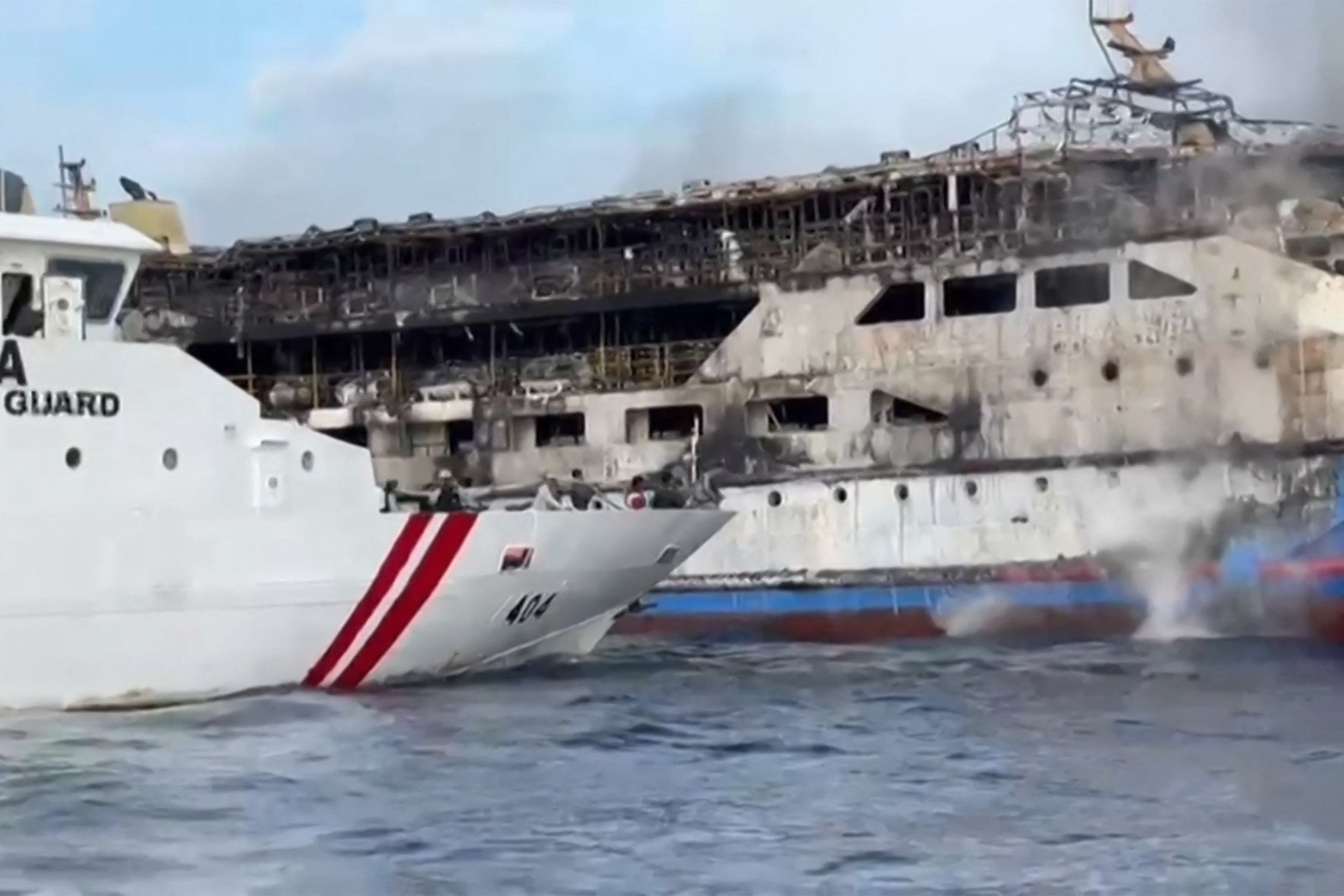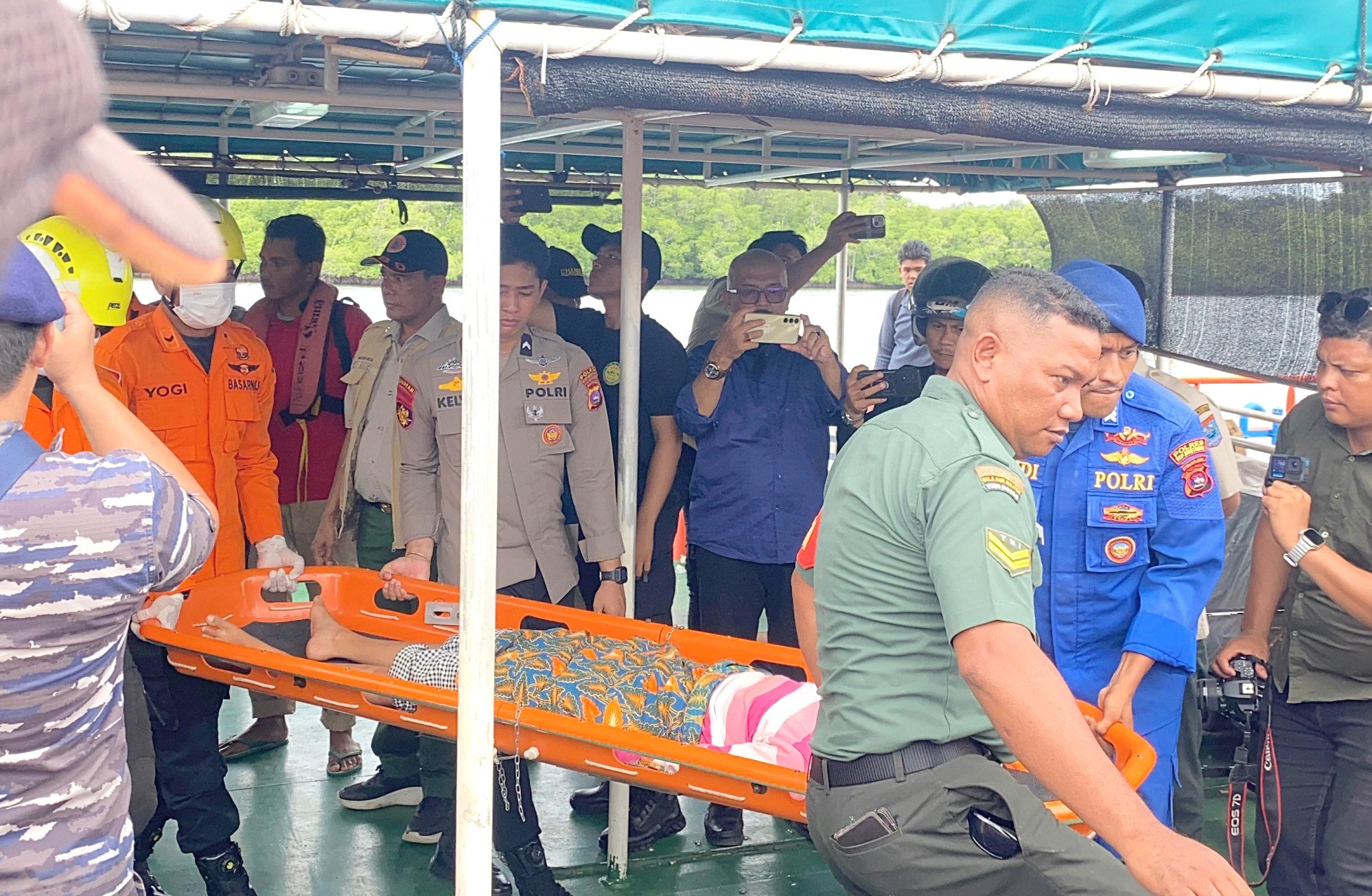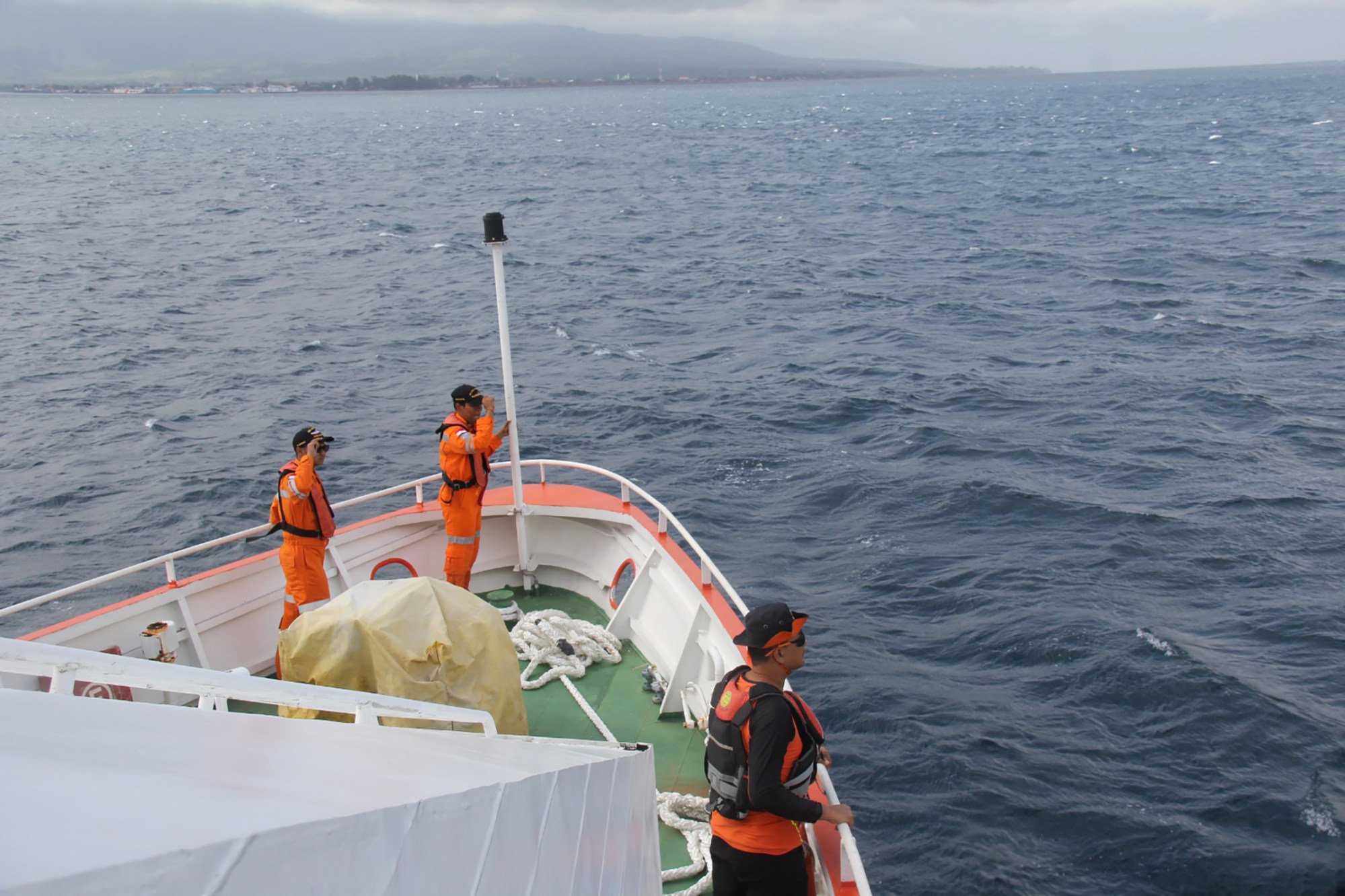Indonesia’s recurring tragedy: deadly boat fire fuels urgent reform calls
The fire off an island in Sulawesi, which killed at least five people, joins the list of boat disasters in Indonesia in recent years

A deadly ferry fire in Indonesia has reignited calls for sweeping reform of its maritime transport sector, with analysts blaming overcapacity, ageing fleets and weak enforcement for a string of recent boat disasters across the sprawling archipelago nation of over 17,000 islands.
On Sunday afternoon, a ferry was carrying more than double its declared passenger capacity when it caught fire off Talise Island, off the coast of Sulawesi, forcing dozens to jump into the sea and killing at least five people, according to the country’s Maritime Security Agency. The vessel KM Barcelona V was travelling from the remote Talaud Islands to Manado in North Sulawesi.
A viral video shows passengers plunging into the water as the fire engulfs the vessel.
Manado’s rescue agency said 571 people were on board despite the ferry’s manifest listing just 280 passengers and 15 crew members.
Including the fire on Sunday, Indonesia has recorded at least three boat disasters alone this month, in addition to a string of other similar incidents in previous years, in a country where ferries are often the only mode of transport available for inter-island connections.
On July 14, a speedboat carrying 18 passengers capsized due to a four-metre high wave in the waters around Mentawai in West Sumatra. All passengers were safe after they swam for six hours to the nearest shore. Rinto Wardana Samaloisa, regent of Mentawai Islands, told state news agency Antara that the ship was “over capacity” as it was only allowed to carry 10 passengers. The vessel also lacked a radio for communication, and it did not have the permit to sail from the harbour master on duty due to “extreme weather”.
On July 2, the KMP Tunu Pratama Jaya ferry went down in the Bali Strait, killing at least 19 passengers, while 16 remained missing as of Monday, the final day of search and rescue.
In the KM Barcelona V incident, the ferry was supposed to leave on Saturday but it was postponed to Sunday because of bad weather, said Muhammad Masyhud, director general of sea transport at the transport ministry.
On Tuesday, North Sulawesi police named the captain of KM Barcelona V as a suspect for violation of shipping safety.
Transport Minister Dudy Purwagandhi has instructed the National Transportation Safety Committee (KNKT) to investigate the cause of the KM Barcelona V incident.
“As of Monday afternoon, smoke and possible sparks were still billowing from the Barcelona V, which is in the waters off Talise Island. All relevant stakeholders are continuing their efforts to extinguish the fire until it is completely extinguished,” Dudy said in a statement on Monday.
“For us at the transport ministry, sea voyage safety is a top priority.”
Unhandled type: inline-plus-widget {“type”:”inline-plus-widget”}
KNKT has investigated over 190 major maritime transport incidents between 2015 and June, which claimed more than 787 lives in total.

Call for cross-subsidies
The latest boat disaster did not shock Hafida Fahmiasari, chairwoman of the Maritime Transport Forum at the Indonesia Transport Society, an NGO that focuses on the Indonesian transport sector.
“This is a systemic [failure]. There’s no coordination among the relevant stakeholders regarding who will take charge, and there’s no coordination in the field,” Hafida told This Week in Asia.
“If passengers exceed capacity, no one [punishes] the operators for the violation. Some ferries also have overpriced and underpriced tickets. There should be cross-subsidies [for public ferries], but we don’t have that system.”
The cross-subsidies would see revenues from ticket sales on busy routes, such as the ferry crossing between Java and Sumatra islands, being used to improve service on quieter, long-distance routes in other islands across Indonesia, she said.
Operators of ferries on long-distance routes typically lacked the capital to maintain the safety of their vessels due to their low ticket prices, Hafida said.
These ships are often old, they can be 20 years old or moreHafida Fahmiasari, Maritime Transport Forum’s chairwoman
“These ships are often old, they can be 20 years old or more, whereas the benchmark for safe ferries overseas is five to 10 years old,” Hafida said.
The cross-subsidies could also help address the issue of discrepancies in recorded passenger data, as many operators often allowed the capacities of their vessels to be exceeded to gain more money, she said.
Sony Sulaksono Wibowo, a transport expert from Bandung Institute of Technology (ITB), said the continued occurrence of ship accidents was a reflection of the “neglect of sea transport”.
“The government is still [focusing] on land transport, even though we are an archipelagic country. In eastern Indonesia, many ferry services are unseaworthy,” Sony said.
“Many ships are [facing] overcapacity due to insufficient fleet capacity. Human resources must also be improved. Increasing the budget [for the transport ministry] would show the government’s seriousness in addressing this issue.”
Sony pointed out that the budget allocation of 70 trillion rupiah (US$4.2 billion) for the public works ministry, whose duties include overseeing road construction, was much bigger than the 26.24 trillion rupiah (US$1.6 billion) allocated for the transport ministry, which takes charge of land, air, and maritime transport.

Safety procedures
Stringent safety protocols for the aviation sector should also apply to sea transport, according to Sony.
Sea passengers should be able to see the locations of life jackets, and they should be unlocked and accessible, Sony said. “Life jackets are often locked in cupboards, which must be unlocked by vessel crew members in case of an emergency,” he added.
“Passengers should be taught the basics of launching lifeboats. In an emergency, it’s impossible for the crew to open them all simultaneously. On aeroplanes, passengers are taught how to open emergency exits.”
He also urged the transport ministry to increase oversight of harbour masters, who direct the mooring and unmooring of vessels.
Hafida is concerned that a failure to carry out comprehensive reform in the maritime transport sector would lead to more frequent incidents, “and people will become numb” about boat disasters.
“This is a basic transport need. If there is no reform, it will continue like this. We will lose a lot of human resources. Foreign tourists will also be anxious about travelling in Indonesia,” Hafida said.